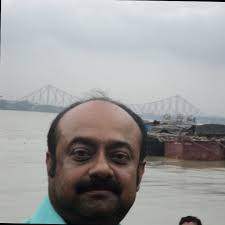"It’s not the happiest of families. But nonetheless that family is now entertaining formal bids from nearly two dozen countries to join their bloc of major emerging economies," commented CNN in its report under the headline -- "A key Russia-friendly bloc may decide to expand. Who stands to benefit?"
Prime Minister Narendra Modi and Iran President Seyyed Ebrahim Raisi last week reiterated their commitment to bolstering bilateral cooperation and also discussed BRICS expansion. Iran is keen to join the prestigious forum.
India says it has "an open mind" but experts feel, New Delhi may not be too comfortable to make BRICS an anti-US bloc especially on non-economic issues.
Hence, the BRICS Summit at Johannesburg and a possible Modi's bilateral talks with Chinese PresidentXi Jinping will be more than mere important diplomatic engagements.
Of course there are issues within BRICS itself.
"Russia’s leader can’t attend the summit because host country South Africa would be obliged to arrest him for alleged war crimes. Two other members, India and China, have a simmering border conflict. And while Beijing is locked in a rivalry with the United States, New Delhi has close ties with Washington," says CNN writer Simone McCarthy.
'The Guardian' newspaper reports that Officials in South Africa say more than 40 countries have expressed interest in joining Brics. Twenty three are thought to have asked formally to be admitted.
Anil Sooklal, South Africa’s ambassador at large for Asia and the Brics, said one of the reasons countries were lining up to join the group was a “very polarised world” that had been further polarised by the Ukraine war, and that countries were being forced to take sides. “Countries in the [global] south don’t want to be told who to support, how to behave and how to conduct their sovereign affairs. They are strong enough now to assert their respective positions,” said Sooklal.
'The Guardian' quotes Prof Harsh Pant, an international relations expert at the Observer Research Foundation, of stating that, “India and least of all Modi have no interest in shaping India’s foreign policy in an anti-western direction. BRICS was conceived as a geoeconomic platform but is drifting into a geopolitical role and India is not likely to be comfortable with that.”
Almost agreeing with the same spirit, the CNN says, "At stake in decisions around expanding is the direction and identity of the group, whose members aim for more say in an international system they see as favoring the West and Group of Seven (G7) nations, despite a shift in who dominates the global economy over recent decades".
The bloc risks becoming more pointedly geopolitical in its bid to rebalance global power, analysts say, especially as China and Russia seek to bring it on side against rising tensions with the West – something its expansion could facilitate.
Meanwhile speaking at a news conference ahead of the summit last week, China’s envoy in South Africa said more and more countries hoped to join BRICS to “safeguard their legitimate interests.”
India's foreign secretary Vinay Kwatra said at a news conference in Delhi: "In so far as the BRICS expansion is concerned, we have been very clear from the start that we have a positive intent and an open mind when it comes to the BRICS expansion. As you all know, BRICS works under the modality and principle of consensus.
"And all the BRICS countries have to have full consensus on how they would want BRICS expanded, what should be the guiding principles of that expansion, what would be the criteria for such an expansion."
The Guardian analysis by Jason Burke, 'Africa correspondent' notes: "One issue at the summit will be moves to undermine the dominance of the US dollar in international trade transactions, which would be helpful to Russia as its economy struggles with sanctions imposed after its full-scale invasion of Ukraine last year".
It also says, China is looking to build a broader coalition of developing countries to extend "Beijing’s influence and reinforce its efforts to compete with the US on the global stage".
“The traditional global governing system has become dysfunctional, deficient and missing in action,” the Chinese ambassador to South Africa, Chen Xiaodong, said at a briefing in Pretoria last week, adding that the Brics grouping was “increasingly becoming a staunch force in defending international justice”.
But both China’s expansion plans and the more explicitly political stance that Beijing has outlined has riled India, the most populous country in the group.
South African President, Cyril Ramaphosa has sought to reassure concerned observers and domestic opponents that South Africa would “not be drawn into a contest between global powers”.
South Africa would also want to avoid a world that was “increasingly polarised into competing camps”. “Our decision not to align with any one of the global powers does not mean that we are neutral on matters of principle or national interest,” he told viewers in a televised national address.
Sometime back, an article in Pakistani newspaper said, "India and many other middle powers are benefiting not only by allying themselves with the US but also by forming independent groupings at the global or regional levels. India’s strategic outreach to the Gulf and Asean stand out. While mini forums like I2U2 (India, Israel, the UAE and US) are tied with the American agenda, India has also advanced its bilateral ties with the capital-rich Gulf independently of Washington.
On some issues, India and its cohorts are aligned with China, for instance, through BRICS and SCO."
('A fluid order' by
Touqir Hussain; published August 19, 2023)







Given that India has been friendly with Iran even during the Gulf country's worst times Vis-a-vis the sanctions imposed by the USA. So I feel India shouldn't mind Iran's expression to join BRICS. Maybe one more I could be added to the acronym to maintain the original pronunciation of this league , which the USA despises. - Kat Patil, Pune
ReplyDelete